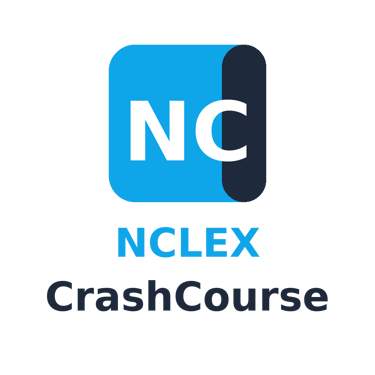Pass The NCLEX On Your First Try With The Crash Pack
Get instant access to a simplified, no-fluff guide with 150 practice questions and answers.


Why Nursing Students Struggle With The NCLEX
(And How To Fix It)
Problem 1: Overwhelming Content
Thousands of topics, diseases, and drugs — how do you know what’s actually tested?
✅ Solution: Our NCLEX Crash Course condenses everything into the must-know essentials so you don’t waste time on fluff.
Problem 2: Poor Question Practice
Reading notes isn’t enough — the NCLEX tests how you think, not just what you memorize.
✅ Solution: We give you 150 realistic practice questions with clear explanations so you learn the logic behind every answer.
Problem 3: Test Anxiety and Low Confidence
Even strong students freeze on exam day.
✅ Solution: Our step-by-step strategies show you how to stay calm, break down tricky questions, and pick the most NCLEX-correct answer.
Problem 4: Wasting Money on Retakes
Each exam retake can cost $200.00+ plus lost time and stress
✅ Solution: With The Crash Pack you walk into the test prepared the first time - saving time, money and your sanity.
Stop Struggling. Start Studying Smart.
You don’t have to waste months buried in 1,000-page textbooks or guessing what will show up on test day.
The NCLEX Crash Pack is your shortcut to clarity, confidence, and a passing score.
👉 Inside, you’ll get:
Condensed study notes (no fluff, only what matters)
150 practice questions with detailed explanations
Proven test-taking strategies that work under pressure
A step-by-step roadmap to exam success
PLUS:
New: Isolation Precautions cheat sheet
New: High-Yield Lab Values quick guide (mnemonics)
💡 Instead of $200+ retakes and endless stress, invest once in yourself.
🚀 Get the NCLEX Crash Pack today — only $49.95
(Instant digital download. Start studying within minutes.




